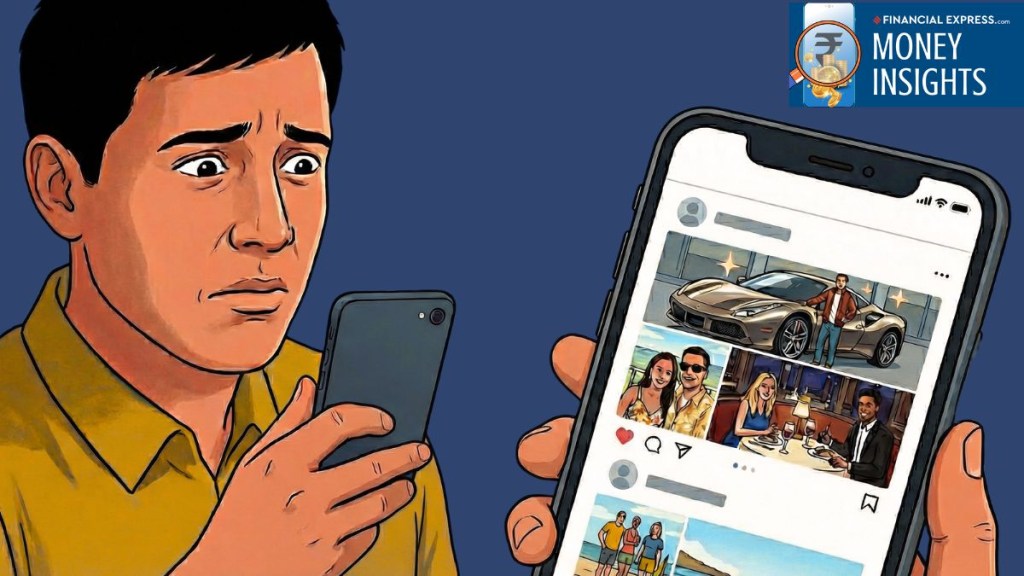It’s a strange sight these days. People in their twenties and thirties talk about “financial freedom” like it’s the final destination of life. But the same people also book weekend getaways, buy the latest gadgets, and order food they don’t really need. They save and spend with equal intensity. It’s not hypocrisy – it’s confusion. This generation grew up hearing “save for the future” but lives in a world where the future itself feels uncertain.
Redefining wealth: From pension plans to sabbaticals
For our parents, financial freedom meant security – a house, a pension, a stable job. For millennials, it means flexibility – the power to quit, travel, or take a break when needed. They don’t dream of owning a big car; they dream of not setting an alarm.
Work-life balance isn’t a luxury anymore, it’s survival. People aren’t saving to buy things – they’re saving to buy time. But time is expensive. Rent, EMIs, subscriptions, and inflation quietly eat into every paycheck. So “freedom” becomes a chase that never quite ends.
The guilt economy: Consumption as therapy
Money today is tied to guilt. Spend too much, and you feel careless. Save too much, and you feel you’re missing life. Social media only makes it worse. Every scroll shows a new trip, a new café, a new gadget. You start believing everyone else has figured it out. So you spend a little more to feel like you belong.
Financial experts say, “Track your expenses.” But how do you track emotions? A large part of spending today is emotional. People don’t buy shoes; they buy confidence. They don’t buy coffee; they buy a break from chaos. The line between need and escape has blurred.
Fear of missing life
Millennials saw their parents delay joy. Vacations postponed, hobbies abandoned, health ignored – all in the name of “saving for the future.” Many don’t want to repeat that pattern. They want to enjoy while they can. But that mindset brings a quiet fear: what if I’m left behind financially?
So they oscillate between discipline and desire. One week, they’ll be reviewing their SIP returns, and the next, they’ll be making travel arrangements. The tension is constant – a tug of war between security and spontaneity. Maybe the real fear isn’t running out of money – it’s running out of time.
FOMO finance: Investing under pressure
The rise of mutual funds, stock apps, and YouTube finance gurus has made investing more common – but also more performative. Many invest not out of patience, but pressure. Every friend talks about “portfolio diversification,” and that creates silent competition.
However, beyond the charts and numbers used by the many financial experts to describe their investment strategies, there exists a deeper story – this generation wants control over their lives. Millennials have watched as economies have crashed, jobs disappeared, and numerous startups have gone bankrupt overnight. Investing provides a level of stability in an increasingly unstable world. The primary motivation for investing is not returns – it is reassurance.
Defining success
Success is no longer measured solely in terms of money. It’s a tool to live on your own terms.
For some, that means moving to a smaller city to slow down. For others, it’s taking a sabbatical without fear. Financial freedom today isn’t about early retirement – it’s about emotional independence.
The dream is simple: to live without panic, not without work. To have enough to choose, not to escape.
Maybe that’s why this generation spends – not because they’re careless, but because they’re tired of waiting for life to begin.
Closing thoughts
We frequently claim that millennials do not comprehend money matters. Perhaps they understand money far better than we think. We know that no matter what size of salary a person earns, if he/she is constantly looking for the next milestone, he/she cannot possibly earn enough money to afford peace. They are not reckless – they are simply attempting to find a way to live in a world where everything appears to be fleeting, including stability.
Financial freedom is not a number in a savings account. It’s the moment you stop seeing money as the goal, and start seeing it as a means to live fully – today, not someday.
Disclaimer: This article is for informational purposes only and does not constitute financial advice. Please consult a qualified professional before making investment decisions.

